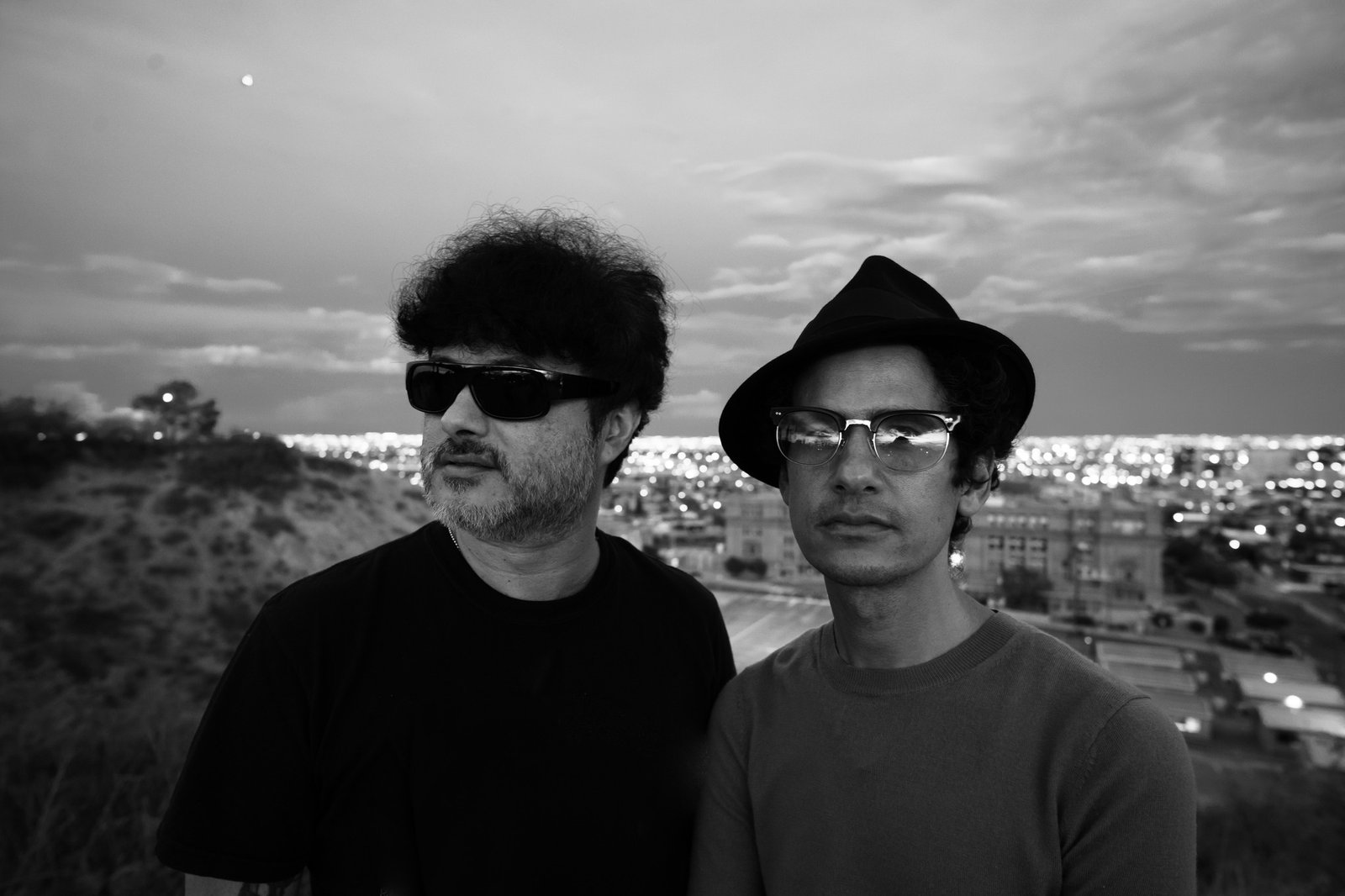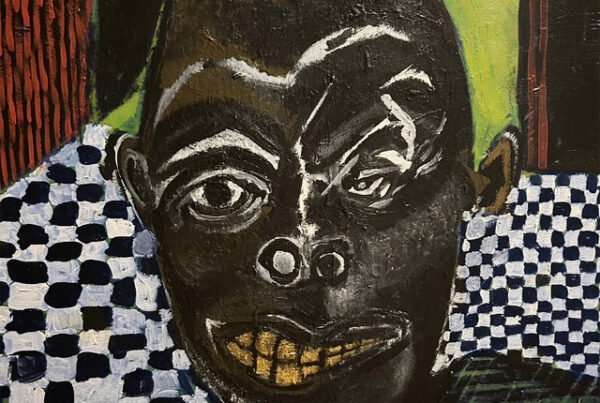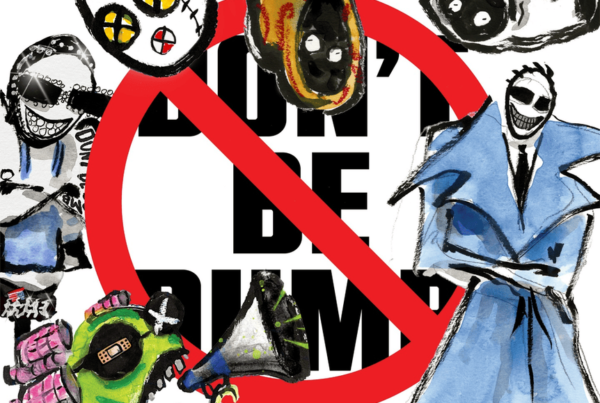Call it want you want – comeback, reinvention, cash grab – the return of The Mars Volta is as purposeful, beautiful, and pleasing as ever, evidence of newfound maturity and vulnerability at the core of the band.
Release date: September 16, 2022 | Clouds Hill | Facebook | Instagram | Twitter | Stream/Purchase
17 years ago, I went to go see System Of A Down blow the fucking roof off of Denver’s Pepsi Center, now called Ball Arena. It was my first big boy concert, I went with a few friends, it was great. Opening for them was a band I had only cursorily heard of before. When they took the stage, it was just a whirlwind of noise and colors – the lead singer was dancing his ass off with luxurious hair that would become #goals for me for years up to now (I can’t pull it off, but I do my own thing), never missing a beat. I was absolutely enamored. It was that moment alone I can attribute to opening the doors to me becoming much more exploratory and weirder in my tastes. That band was The Mars Volta.
It’s hard to put into words how much the band means to me. Even during a time where I’m done with idolatry and only want to see artists for who they are – people, who are inherently, unquestionably flawed – it’s hard not to see Cedric Bixler-Zavala as the cool dude he seems to be. Omar Rodriguez-López, though more private, is equally deserving of that accolade just knowing that he’s a primary force behind The Mars Volta‘s music. It’s also why it was devastating seeing them break up and fall out after 2012’s Noctourniquet, an admittedly divisive album to follow the acid-trip concepts and progression of past work.
The Mars Volta, the album, is Cedric and Omar punching the reset button in unison, though not leaving behind all they built up to now. Yes, this album’s different, but to say there isn’t common themes or approaches is disingenuous. This is Cedric and Omar grown up, made up, and still showing a fiery purpose with their art. The first taste we got of this album, “Blacklight Shine”, was a short film steeped in Puerto Rican culture and life. The thumbnail emblazoned with the flag of Puerto Rico, people dancing Bomba, wearing more traditional clothing, playing traditional music that’s very much ingrained in the song itself… it’s life, for a lot of people. It’s the perseverance of historical and native culture, seeing older generations bring younger into the fold to learn and, hopefully, retain what makes them them. It’s beautiful, and seeing people of all related origins – Dominican, Taino, Aboriginal, African – in the comments of the video lighting up with appreciation is too.
Omar is Boricua, born in Puerto Rico, so him going so hard as to take this direction with the visuals for the band makes perfect sense. Cedric, though Mexican in heritage – mi gente – surely didn’t have to be swayed much to get on board with that. This is where the themes of The Mars Volta begin to take shape in a layered and multi-angled fashion. It’s an album of resistance, of revolution, easily read as a defiant sword against the throat of colonialism and erasure that many people have had to fight for generations and centuries, especially Afro-Latin people. Personally, Cedric wove his own personal life in the least cryptic way he’s ever done, writing lyrics that reference his very antagonistic history with the Church of Scientology (he was a member of the church around the time The Mars Volta broke up, which was also at least a partial cause of said break-up), seething with revenge for what the church and its members have done to him and his wife, actress Chrissie Bixler (fuck Danny Masterson forever).
The intersection of all of these elements is the music itself, a fair number of steps calmer and more considered than the delectable chaos of past albums. Instrumentation retains Latin flair, but otherwise form poppy and restrained structures to help guide the dance of lyrical blades on many songs. “Equus 3” is an electro-rock punctuation toward the end of the record, but the lyrics are laced with vengeance seemingly referencing an ongoing lawsuit the Bixler family are complainants of.
‘Don’t you let the spurs dig in
Will the deepest pockets win?
Will it only matter when it comes
And it happens to you?
You can try and blind them all
You can claim your god as fault
But I’ll make him shatter when
I’ll take an eye for an eye‘
Another key difference, but a welcomed one at that, is that there’s some genuine hooks on this thing. “The Requisition” has a groovy hook after an already groovy verse melody with bold bass. “Blacklight Shine” was a very strong single to lead with and introduce this newer sound to old fans – guitars are washed out with some reverb, the Latin percussion calls back to classics like “Drunkship of Lanterns” or “L’Via L’Viaquez”. You just want to sing along to much of it, the mark of a good pop record for sure, but also shows how far The Mars Volta are removed from their past on purpose. “Vigil” is haunting – for as clean as it is with its surf rock-styled guitar lead toward the end, the ascending and descending grating hums of noise (also generated by a guitar?) feel almost occult in nature.
My favorite track is without a doubt “Que Dios Te Maldiga Mi Corazon” (‘May God Curse You My Heart/Love‘), which steps up the Latin influence to its highest danceable point on the album. The piano is absolutely exquisite. If I had any sort of complaint about The Mars Volta, it’s simply that I wanted more of this, but it makes me appreciate what we got from it even more. I commend it for what it is. Some fans will be disappointed, but we’ll always have the youthful energy of Deloused in the Comatorium or The Bedlam in Goliath. The Mars Volta are unapologetically on their grown man shit now, freed from any possible constraints ironically enough, and it’s more beautiful than I could have ever imagined, leagues better than their short-lived excursion as Antemasque or their reunion as At the Drive-In.
The Mars Volta is a Trojan horse of sorts, sneaking its way back into the hearts of fans, sneaking its way past the oppressive pat-downs and censures it rallies against, on all levels. I’ve never heard the band like this, and neither have you. It’s only possible after years of reconciliation, honestly, and hardship, chronicled in a number of talks Omar and Cedric have had, though my favorite is their sit-down with Zane Lowe, which is unflinching and human as hell. I can’t help it – I love The Mars Volta, and now with more self-awareness, kindness, and focusing their vitriol at institutions that well and truly deserve it, it’s nigh impossible not to see them as folk heroes of sorts, prime examples of how to grow in mind and spirit, and maybe this new album is the start of something even greater than before.
Before I go, I want to send a shoutout to Puerto Rico itself, from which I have a number of friends, one who writes for this very site. The island has once again been ravaged by a hurricane which knocked out their entire power grid, caused floods, and so much more horrendous, preventable disaster. I urge you to take a look at this abridged list of resources and ways you can provide community support as the people fight for literal survival and begin to rebuild only a handful of years after another hurricane destroyed them in very similar ways.
Artist photo by Fat Bob






